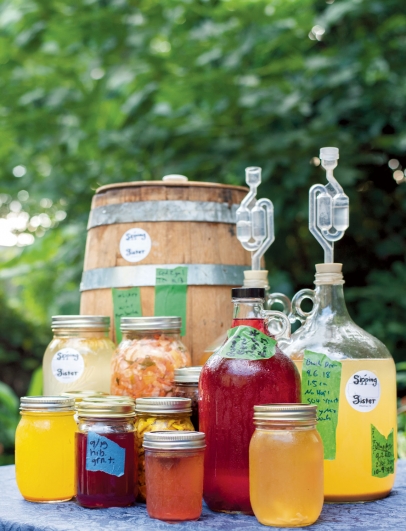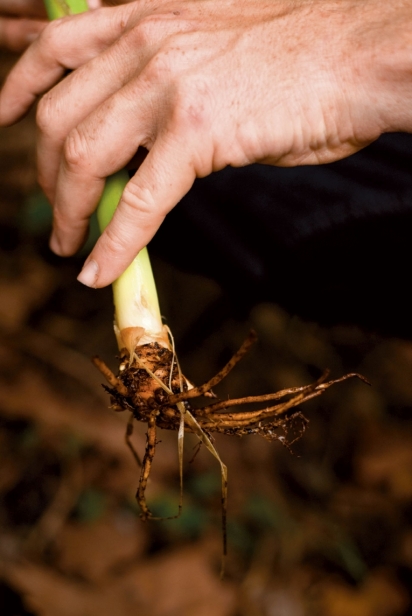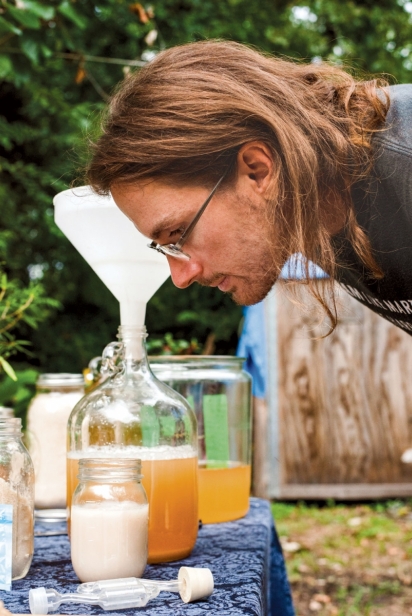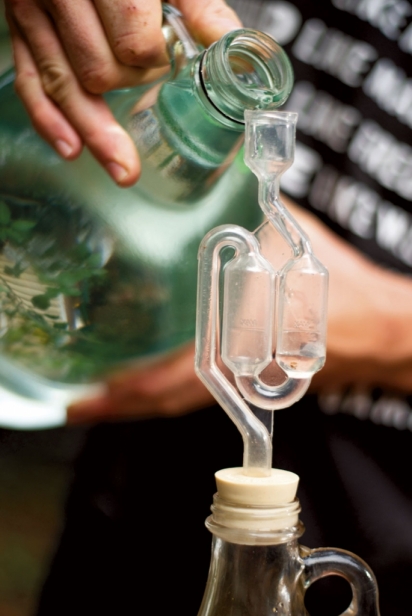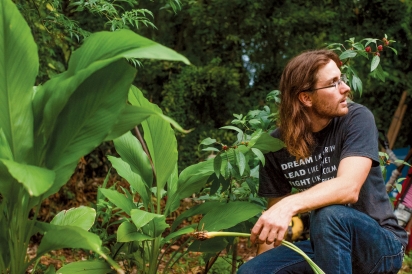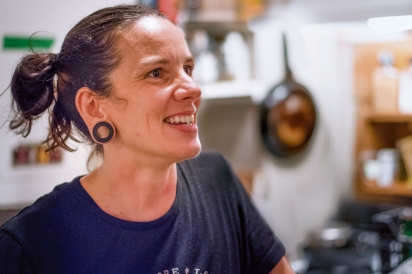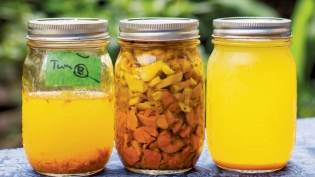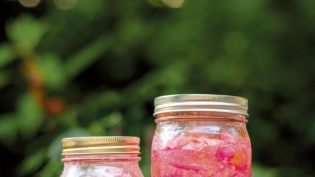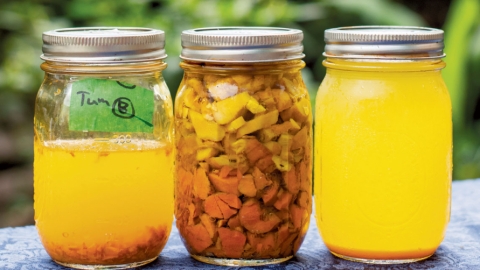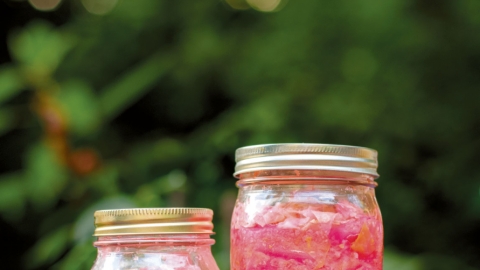Un-Pickle with Sipping Sister
Fermentation from field harvest to bottle and jar
Fermentation isn’t just about bubbling drinks and tart pickled veggies to Andrew Cobb and Tracy Hamblin of Sipping Sister Fermentation. To them, fermentation is an important piece of the much larger fabric of sustainable living.
By learning to ferment, both Cobb and Hamblin believe that people are drawn into caring about the world around them in a bigger way. Classes they teach focus on the mechanics of fermentation, but also acknowledge that fermentation came about out of growing food and reducing food waste. Cobb and Hamblin can often be found teaching public classes at Finca Tres Robles, selling ferments and giving demos at farmers markets, providing private wine and kombucha classes and doing student outreach.
Cobb named Sipping Sister for his late sister, Jennifer Cobb, who introduced him to kombucha. While he didn’t immediately take to fermenting, things clicked five years ago and he decided to dive in.
“I went to a permaculture design course in Missouri and I decided [that when I returned] I was going learn how to ferment and teach five more people.” He followed through on his promise, and he hasn’t stopped teaching fermentation since.
Hamblin, a landscaper and massage therapist, met Cobb through Food Not Bombs and Japhet Creek Conservancy events and over time they decided to join forces to help educate Houston on the joys of fermentation.
Essential to Cobb’s work is growing and harvesting the ingredients that he ferments. “It’s my preference to grow or harvest everything I ferment, especially vegetables. In the beginning, almost everything was coming from my garden, Finca Tres Robles, or another local farm. Same for all the flavorings. Ingredients like ginger and turmeric have gotten really popular so I’m starting to grow those myself too,” he said.
Finca Tres Robles, a farm in the East End of Houston, has played a vital role in Sipping Sister’s work by providing a place to host fermentation classes as well as being a source of ingredients. Cobb has known the brothers of Finca Tres Robles since childhood, and played soccer with Finca’s founder and general manager, Thomas Garcia- Prats. Cobb has been involved with the project since its founding and volunteered at the farm the first three years of business.
Fermentation Basics
So, what is fermentation? “The chemical breakdown of sugars in an anaerobic environment by microbes such as yeast, bacteria and fungus,” said Hamblin. And there are different types of fermentation. The term most often refers to the process that turns sugar into ethanol— used to produce alcoholic drinks—but similar processes take place when preserving food through the creation of lactic acid, like when making yogurt or pickled vegetables.
For someone who has never fermented foods, it can be a big jump to start making their own. “The first thing I fermented was beets,” said Cobb. “I just put them in my pantry and left them for a few days. One day I saw something coming out of the pantry door and opened it up and beet juice was everywhere. I didn’t know if it had worked! It was fizzing and it tasted sour, but I definitely stained everything in that closet.” There will mistakes and mishaps along the way when learning any new skill, but avoiding beets for the first few tries might help you avoid permanent reminders of any missteps!
The good news, though, is that fermentation isn’t really that difficult. “I like fermentation because it’s very forgiving,” he said. “Just like planting a seed. If you have the right environment set up it’s going to do its own thing. In classes people are often concerned they’re going to mess something up, but it’s not usually a problem [At worst], maybe you just made salad dressing!”
“Fermentation has taught me not to be afraid,” Hamblin added, “Remember: The nose knows! I’ve learned that I can open the jar and smell it and I can trust my nose: I know whether it’s OK to eat or not. You don’t have to be fearful of food.”
A sense of adventure and willingness to experiment will help along the way too.
“A few of years ago I made a sweet-potato wine,” Cobb recalled. “I fermented it for a month, tasted it and it was awful. So, I added nutmeg, honey, orange peel and some other spices in it, brewed it again and it turned out amazing! It went from the worst to the best.”
Lastly, the Sipping Sister duo wants to make one thing clear: “We love fermentation, but also we’re not trying to tell you to start drinking only fermented drinks—you also need water!” Hamblin said. “A lot of people treat it like it’s a soda and would drink that all day long. But I don’t recommend it. Everything in moderation!”
If you’d like to start fermenting and want to get to know others who are excited about it, sign up for one of Sipping Sister Fermentation’s classes through TXRX Labs or follow them on Facebook for updates on the next time that they’ll be doing demos at area farmers markets.


